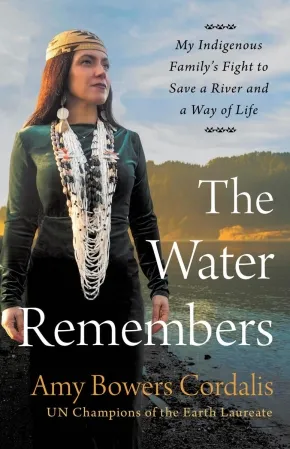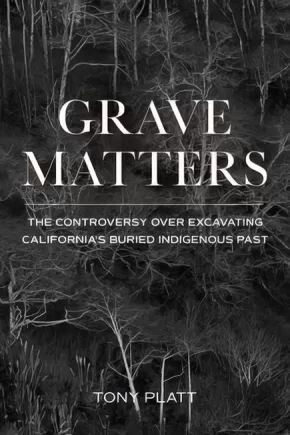Yurok
Synopsis:
A moving multigenerational memoir of Indigenous resistance, environmental justice, and a Yurok family's fight to protect their legacy and the Klamath River.
For the members of a Northern California tribe, salmon are the lifeblood of the people—a vital source of food, income, and cultural identity. When a catastrophic fish kill devastates the river, Amy Bowers Cordalis is propelled into action, reigniting her family's 170-year battle against the U.S. government.
In a moving and engrossing blend of memoir and history, Cordalis propels readers through generations of her family’s struggle, where she learns that the fight for survival is not only about fishing—it’s about protecting a way of life and the right of a species and river to exist. Her great-uncle's landmark Supreme Court case reaffirming her Nation’s rights to land, water, fish, and sovereignty, her great-grandmother’s defiant resistance during the Salmon Wars, and her family's ongoing battles against government overreach shape the deep commitment to justice that drives Cordalis forward.
When the source of the fish kill is revealed, Cordalis steps up as General Counsel for the Yurok Tribe to hold powerful corporate interests accountable, and to spearhead the largest river restoration project in history. The Water Remembers is a testament to the enduring power of Indigenous knowledge, family legacy, and the determination to ensure that future generations remember what it means to live in balance with the earth.
Reviews
"A powerful interweaving of memory, history, and activism, The Water Remembers is a lyrical and uncompromising account of Amy Bowers Cordalis’s fight to protect the Klamath River and the sovereignty of the Yurok Nation. Told through a Yurok storytelling lens, this book traverses ancestral knowledge, ecological devastation, and legal resistance, revealing the sacred bond between people and river. Bowers Cordalis, an attorney and lifelong fisherwoman, writes with the clarity of lived experience and the heart of a riverkeeper. This is a vital work of Indigenous resurgence and environmental justice, brimming with spirit, truth, and unstoppable resolve."—Terese Marie Mailhot, author of Heart Berries
"The Water Remembers is a powerful, poetic testament to Indigenous resilience and reverence for the natural world. Amy Bowers Cordalis weaves history, activism, and sacred connection into a compelling narrative of communities fighting to protect what is most vital. This book is not just a call to action; it’s a song of survival and restoration."—Leah Thomas, environmental educator and author of The Intersectional Environmentalist
Additional Information
288 pages | 6.00" x 9.25" | Hardcover
Synopsis:
How do we reconcile the sanctity of Indigenous burial grounds with the desire to study them?
Whether by curious Boy Scouts and “backyard archaeologists” or competitive collectors and knowledge-hungry anthropologists, the excavation of Native remains is a practice fraught with injustice and simmering resentments.
Grave Matters is the history of the treatment of Native remains in California and the story of the complicated relationship between researcher and researched. Tony Platt begins his journey with his son’s funeral at Big Lagoon, a seaside village in pastoral Humboldt County in Northern California, once O-pyúweg, a bustling center for the Yurok and the site of a plundered native cemetery. Platt travels the globe in search of the answer to the question: How do we reconcile a place of extraordinary beauty with its horrific past?
Grave Matters centers the Yurok people and the eventual movement to repatriate remains and reclaim ancient rights, but it is also a universal story of coming to terms with the painful legacy of a sorrowful past. This book, originally published in 2011, is updated here with a preface by the author.
Reviews
“A new edition on the tenth anniversary of Tony Platt's extraordinary work, Grave Matters, could not come at a more important moment when the precariousness of the planet itself recalls the genocide unleashed by European and Euroamerican colonialism that endures and continues to haunt descendants of the perpetrators, many of whom engage in ghoulish thefts of the remains of the dead. In his own grieving for a lost son, Platt enters a circle of grieving in the Yurok nation, becoming a powerful voice for decolonization and the protection of Indigenous grave sites.” —Roxanne Dunbar-Ortiz, author of An Indigenous Peoples' History of the United States
Additional Information
256 pages | 6.00" x 9.00" | Paperback







